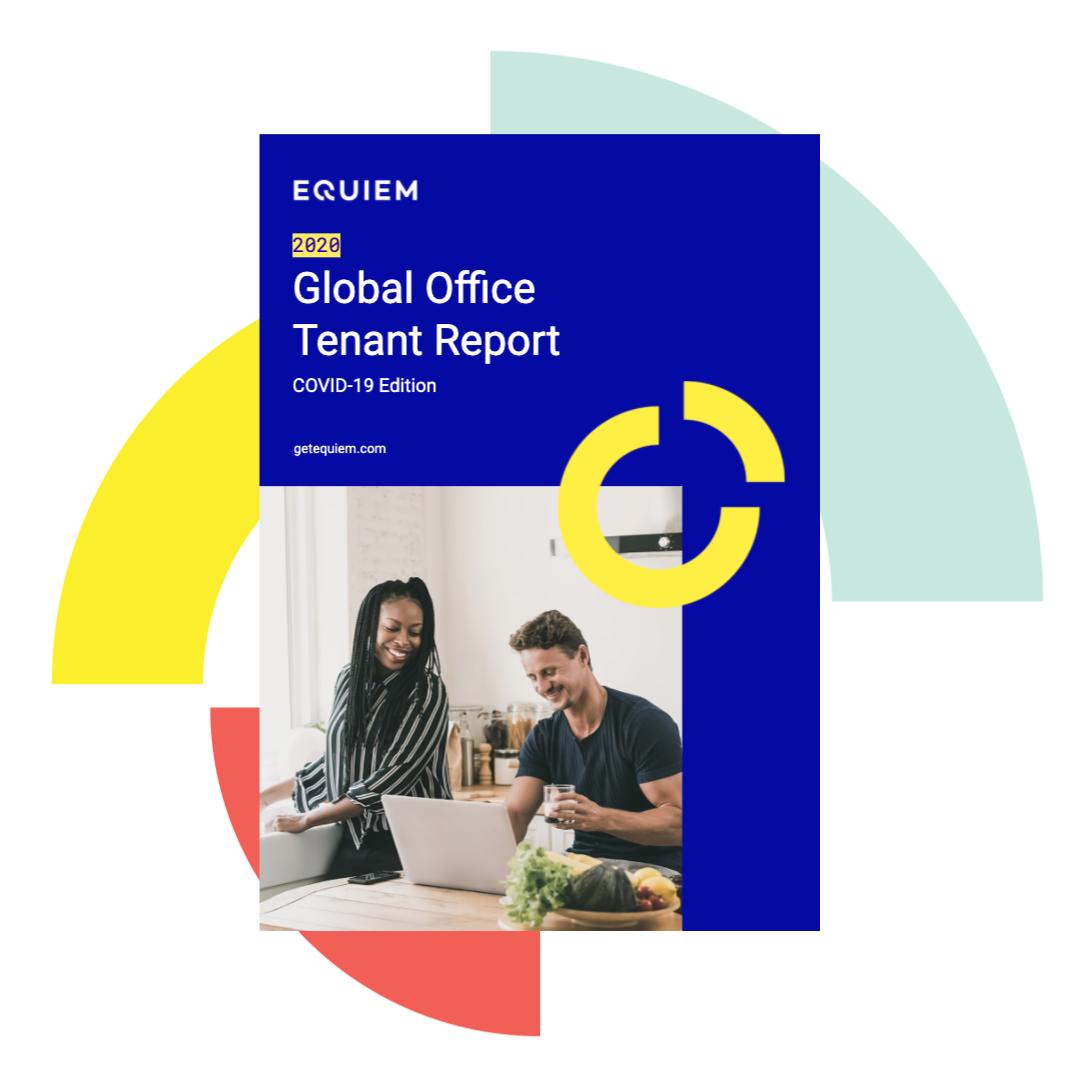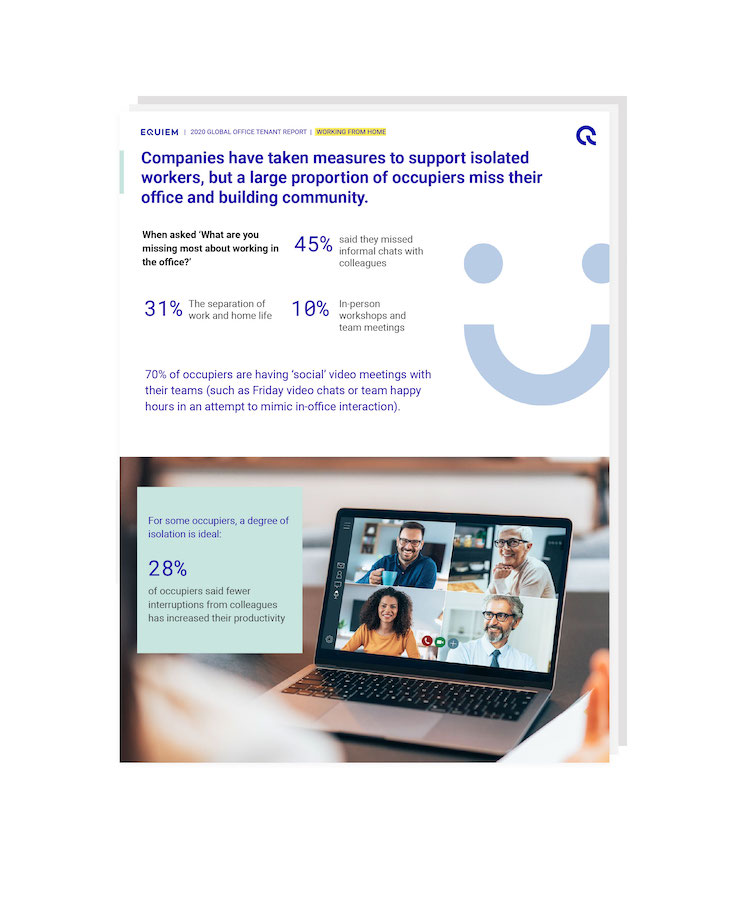
Over 60% of occupiers said they wouldn’t return to the office until it ‘feels safe’ - discover what they need to feel secure, plus many other timely insights for landlords in Equiem’s most comprehensive tenant survey to date.
Hosted via Equiem’s world-leading tenant experience platform, used by over 175,000 office workers worldwide, the report provides insights into the impact of COVID-19 on worker’s remote work situations, expectations for their return to the office and health and safety concerns.
In addition, we interviewed owner and managing agents representing over 20 landlords - adding further perspective to what systems, protocols and other changes landlords will need to implement in order for tenants to feel safe when they return.
Download the full report, for free, below:
We're committed to your privacy. We use the information you provide to only send you relevant content, from which you can unsubscribe at any time. For more information, view our privacy policy.
Highlights of the results include:
- Occupiers are productive at home, but struggle with sub-optimal work environments and lack of interaction with colleagues. 82% of occupiers reported to be as or more productive at home, however 45% missed conversations with colleagues. In addition, 56% desired better work setups, 25% wished for better access to home health and wellness options and 18% needed better access to work-from-home resources.
- 60% of occupiers won’t return to office until ‘it feels safe’. Critical factors for them to return are information and communication. Upon returning, over 80% of occupiers expect up-to-date information on active in-building COVID-19 cases, new safety procedures (including use of facilities), and cleaning procedures from their landlords or company. Over 60% also expect current office density information to be available.
- Occupiers who worked in-office during lockdown anticipate a greater risk of infection once everyone returns. 45% believe the office presents a low to very low risk of infection during lockdown, with this number dropping to 22% when lockdown ends.
- Australian occupiers believe they are more productive than before the lockdown, while US and UK occupiers believe they are as productive as before.
- Tenant experience platforms have become important channels to acquire information for occupiers. 70% of occupiers believe COVID-19 related updates on their Equiem platform have been highly valuable.
- Remote work is here to stay. 65% of occupiers expect to work from home once a week or more once restrictions are lifted, compared to the 28% who were doing so before. Landlords similarly agree that there will likely be an increase in remote working post-lockdown.
- Effective density management is key for both occupiers and landlords. 48% of occupiers believe changes are required to reduce likelihood of incidental contact, while 58% of landlords are concerned about controlling and monitoring social distancing, particularly in lifts and reception areas.

.png?width=592&height=100&name=Equiem-logo-grey%202%20(1).png)
